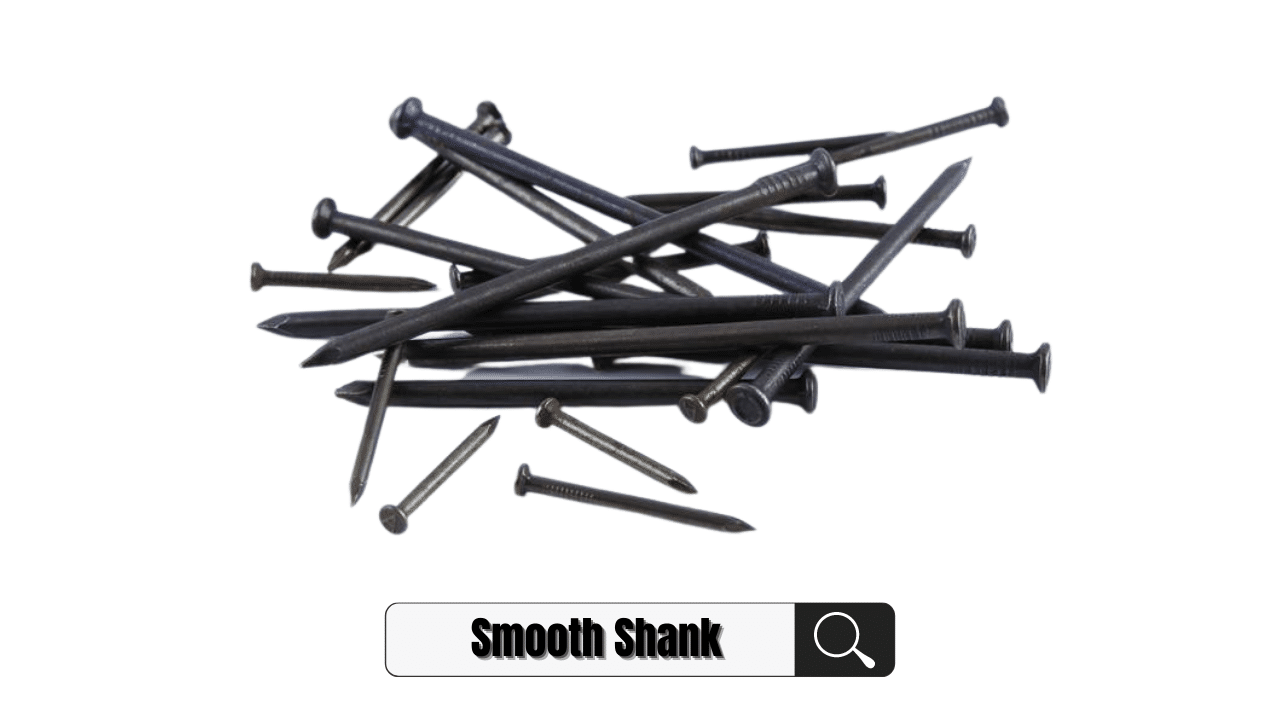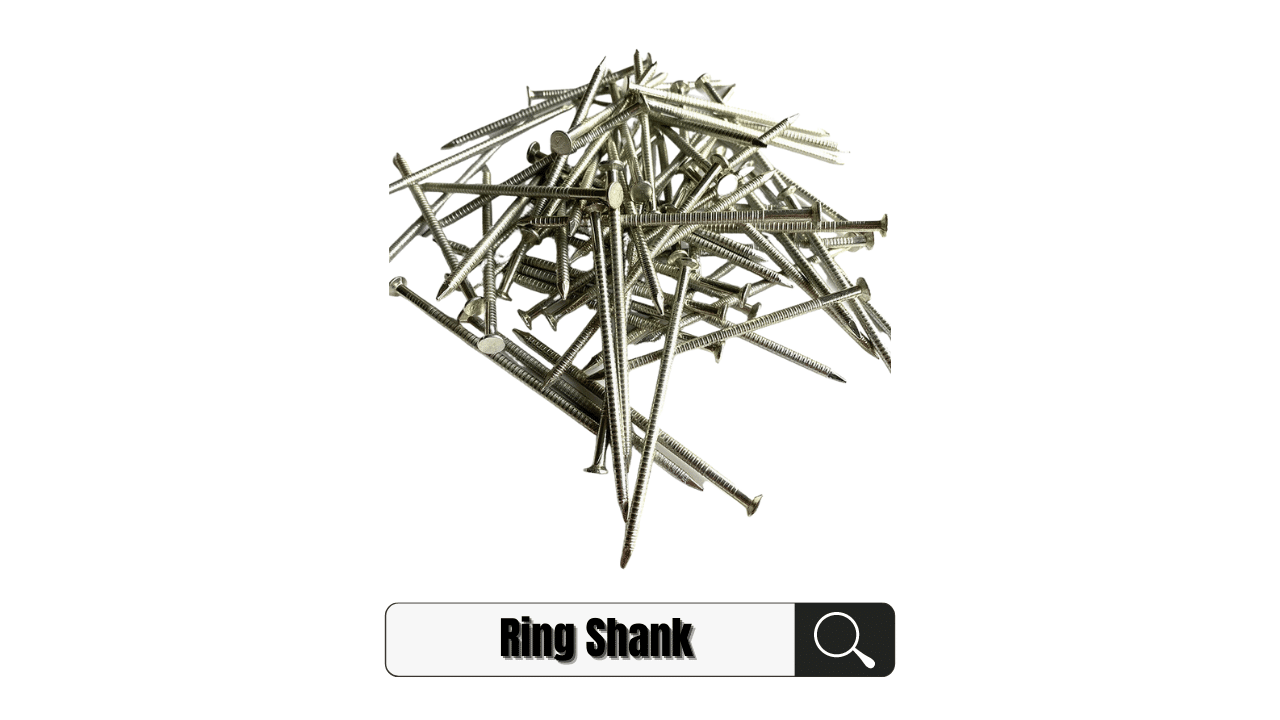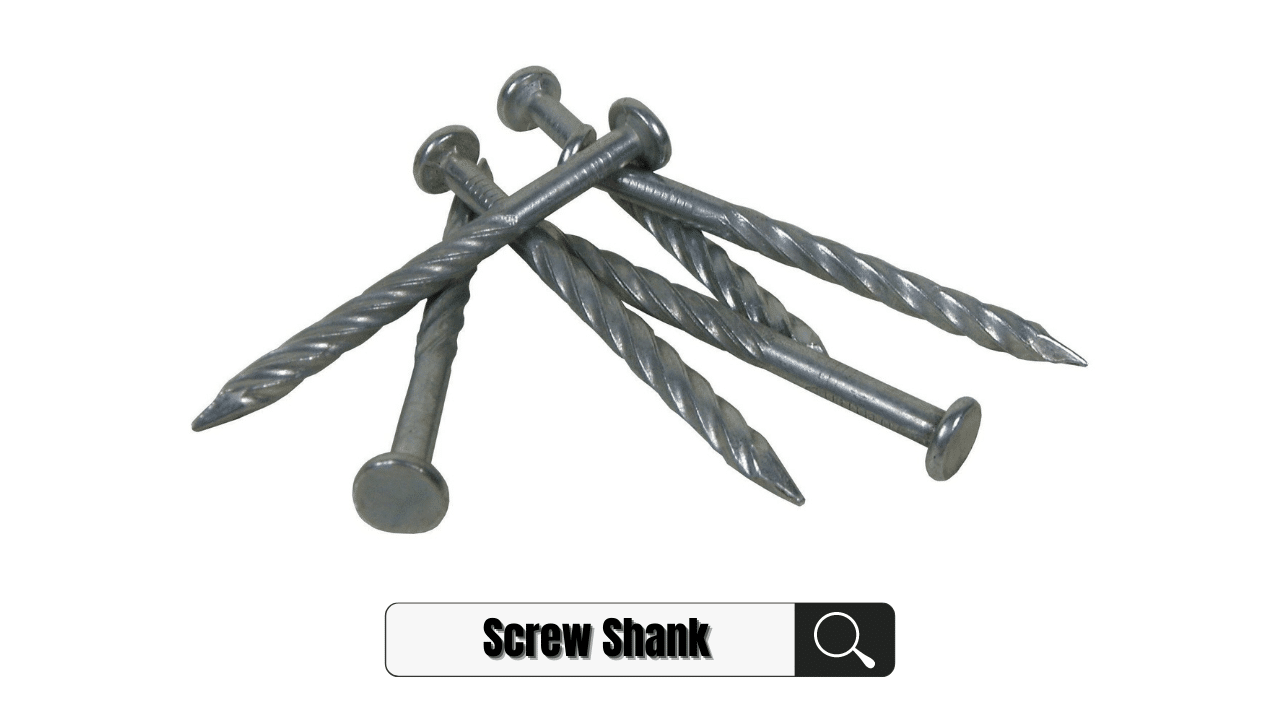You’d be forgiven for thinking that a nail is a nail, but there’s a lot more to it when it comes to choosing the best nails for your roofing project. There are three primary types of roofing nails to choose from:
We explain each of these in detail in this section before introducing the different materials that roofing nails typically consist of.
Smooth Shank
When to Use: For budget roofing projects and low-grade composite roofs.

Smooth shank nails are the most prevalent on building sites and are commonly used for roofing projects. This is because they’re cheap and widely available, but they’re also the least complex of all the shanks you can use.
As the name suggests, smooth shanks are free of grooves and extremely easy to hammer. Although they’re commonly used, smooth shanks don’t necessarily have the hold required for tiles or architectural shingles.
This is often referred to as ‘withdrawal resistance,’ which is an important consideration when it comes to choosing the perfect nails for your roofing project. Ultimately, smooth shank roofing nails have limited holding power, and they aren’t the best option available for complex roofing projects.
Ring Shank
When to Use: For a more resistant roofing nail than a smooth shank – ideal for more complex roofing projects.

Ring shank roofing nails have approximately twice the withdrawal resistance of smooth shank nails and are a better option when you’re undertaking a more complex roofing project.
The additional resistance comes from the small grooves that are present on the shank, which provides the nail with a ribbed feeling. When hammered, the ribbed shank displaces the wood’s fibers and cements itself within the wood more efficiently.
Ultimately, this means that the nail is much more difficult to displace and isn’t likely to come out during inclement weather or high winds, as might be the case with a roof that has been affixed with smooth shanks.
Screw Shank
When to use: For ultimate withdrawal resistance. That being said, they’re not suitable for hardwood use.

At first glance, screw shanks look like standard screws, which is where they get their name from. These shanks have the same grooves that you will find in a screw and are a popular choice for certain roofing projects.
Of the three types of roofing nails, screw shanks undoubtedly have the best withdrawal resistance and ensure your roof is securely fastened. But equally, screw shanks are difficult to nail into hardwoods, which puts some roofers off using them.
Screw shanks are also much more expensive than smooth and ring shanks, which is another reason why they’re not as popular as you might think.
Roofing Nails Materials – Which is Best?
When you’ve decided on the type of roofing nail to use, you need to consider the material. Each of the nails introduced above is available in the following materials:
Ultimately, the best option for most roofing projects is galvanized roofing nails. This is because they’re affordable and more durable than both aluminum and copper and can be used throughout the country regardless of the climate.
Roofing Nails Buying Guide
Now you know the different roofing nails you can use, it’s time to decide which is best suited for your roofing project. To help you buy the perfect roofing nails, here are some important things you need to consider:
It’s important to factor in the price of your nails, fasteners, and other additional materials when calculating the final cost of your roofing project, as the extras will certainly surprise you if you don’t factor them into your initial costings!
The Verdict: The Best Type of Roofing Nail
Choosing the perfect roofing nails is equally as important as selecting the core material for your roof. As our buying guide explains, your nails need to be of sufficient diameter and length to be compliant with IBC guidelines, and you need to carefully select your chosen material and nail style.
Overall, we would suggest that galvanized ring shanks are the best roofing nails for most projects, but you need to consider which is the best roofing nail for your specific project before committing to a purchase.
